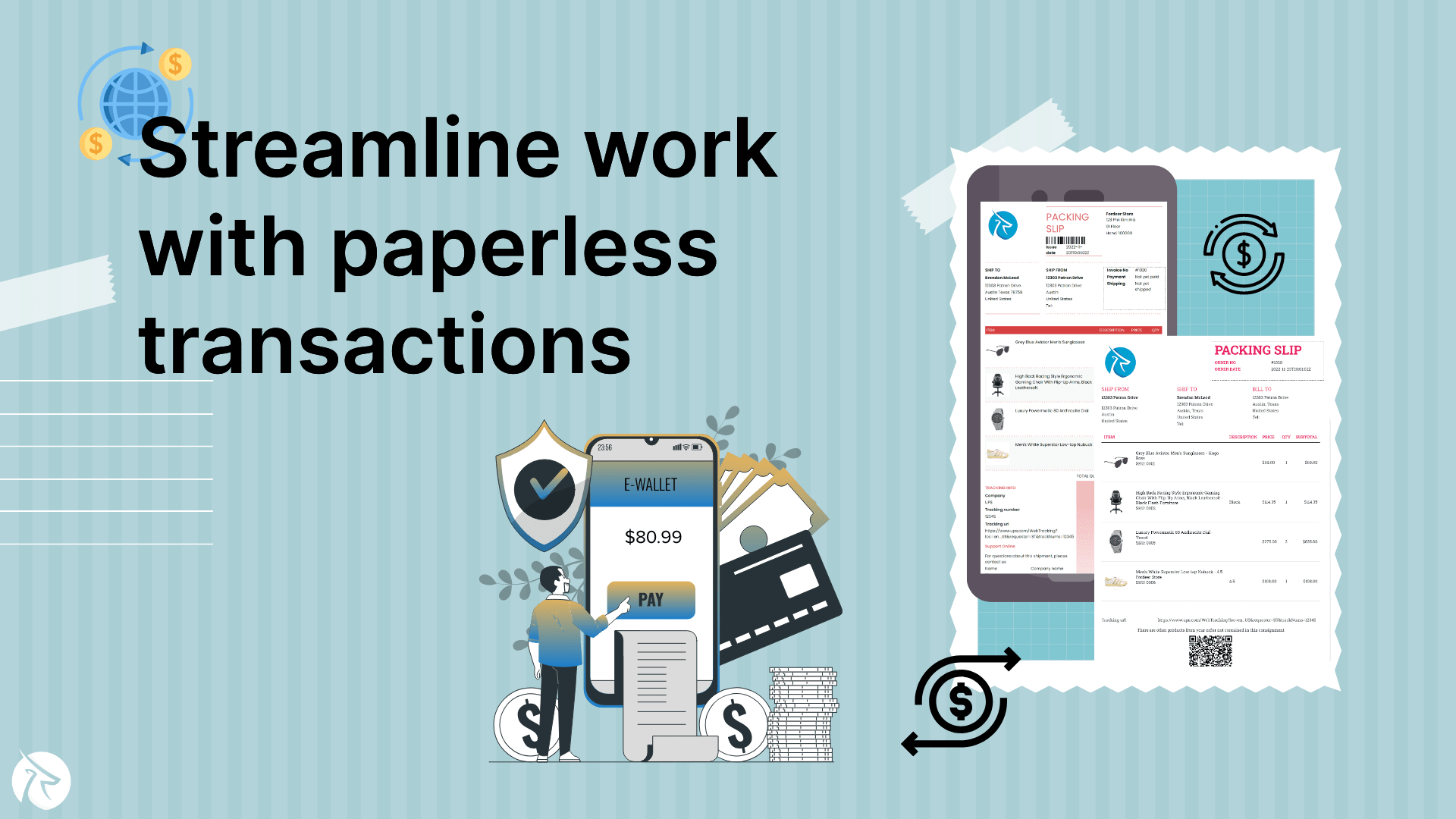Creating a Seamless Shopping Experience: eCommerce UX Best Practices

The year 2023 marks a watershed moment in the history of eCommerce. It has grown in relevance, influencing the modern corporate scene. eCommerce is no longer a passing fad; it is a disruptive force that is reshaping purchasing, selling, and global connectedness.
eCommerce will be a significant element of trade in 2023. Global events, changing consumer preferences, and technology breakthroughs have propelled it. eCommerce is no longer an option but rather a necessary component of modern online business.
Consumer behaviour is always changing as a result of technological advancements and increased convenience, so understanding the evolution of eCommerce is critical for success. In this article, Fordeer will investigate how changes in consumer behaviour, particularly the move to mobile purchasing and the demand for tailored experiences, influence eCommerce developments in 2023 and beyond.
The State of eCommerce in 2023
eCommerce Market Size and Growth
The eCommerce market will have grown at an unparalleled rate by 2023. Recent figures show its massive size and the positive trend it is on. Global e-commerce growth is expected to be 8.9% in 2023, increasing global e-commerce sales to $5.8 trillion. This exponential growth can be traced in part to the pandemic's paradigm shift in consumer behaviour and the adoption of digital purchasing alternatives.
Key Players and Competition
eCommerce is a dynamic battleground for innovation and competition, with numerous notable players emerging as industry titans in 2023. Giants like Amazon, Alibaba, Walmart, and eBay dominate the global stage, but alongside them, a multitude of niche and regional competitors also wield significant influence within the eCommerce ecosystem.
This intense competition has forced e-commerce companies into a continuous cycle of innovation and enhancement. It's no longer just about selling products online; the focus has shifted towards creating comprehensive shopping experiences that prioritize convenience, personalization, and efficiency.
Emerging eCommerce Trends
eCommerce is always changing as a result of evolving customer behaviour and technical advancements. Several significant trends will propel the market forward in 2023:
Omnichannel Retailing: In the contemporary retail landscape, customers increasingly seek a unified purchasing experience that seamlessly bridges both online and offline platforms. To meet this growing demand, omnichannel retailing tries to address this demand by integrating numerous shopping channels, assuring consistent interactions and user accessibility.
Voice Commerce and Smart Assistants: The development of voice commerce, driven by smart assistants such as Siri and Alexa, is altering how people shop online.
This revolutionary shift empowers shoppers to utilize voice commands for tasks ranging from product searches and order placements to receiving personalized recommendations. As a result, the shopping process is being streamlined and accelerated, fundamentally changing the way people shop online.
Augmented Reality (AR) Shopping: AR technology is improving the eCommerce purchasing experience by allowing shoppers to perceive things in their real-world environment before making a purchase. This trend is especially relevant in areas such as furniture and fashion, where product fit and look are extremely important.
Sustainable and Ethical eCommerce: Consumers are becoming increasingly concerned about the environmental and ethical implications of their purchases. This shift in consumer values has created a unique opportunity for businesses that prioritize sustainability, fair trade, and ethical practices.
By aligning with these principles, companies not only meet the changing expectations of their customers but also gain a distinct competitive advantage in the marketplace.
Social Commerce: Indeed, social media platforms have undergone a significant transformation, transcending their original purpose as mere spaces for social interaction. Today, they have evolved into robust shopping destinations, giving rise to the phenomenon known as social commerce.
Through social commerce, these platforms leverage their capabilities to facilitate end-to-end shopping experiences. Users can seamlessly discover products, explore their options, and complete purchases—all while remaining within the confines of the social media ecosystem.
The Role of Artificial Intelligence (AI) in eCommerce
Artificial Intelligence (AI) is a driving force behind the transformation of the eCommerce landscape, playing a pivotal role in several areas:
Personalized Shopping Recommendations
AI systems evaluate massive quantities of client data to provide customized product recommendations. These personalized suggestions considerably improve the shopping experience by assisting clients in discovering products that match their tastes and previous buying activity.
Chatbots and Customer Support
Chatbots driven by AI are transforming customer service in eCommerce. These virtual assistants are designed to deliver prompt and efficient responses to customer inquiries, substantially enhancing response times and overall availability. By addressing common queries and aiding in order tracking, chatbots contribute significantly to an improved customer support experience.
AI-Powered Search and Navigation
AI-powered search and navigation tools are changing the way users interact with eCommerce websites. Leveraging natural language processing and machine learning, these sophisticated systems can decipher user queries and deliver remarkably pertinent search outcomes.
This means that customers can effortlessly find the products they are looking for, even when using vague or conversational language in their searches.
Furthermore, AI-powered navigation improves user experience by recommending relevant products, speeding the browsing process, and boosting the possibility of cross-selling and upselling.
The Impact of Supply Chain Disruptions
Supply Chain Challenges in eCommerce
In recent years, eCommerce supply chains have encountered tremendous problems. Global disruptions, shipping delays, and shifting consumer preferences have exposed vulnerabilities in these systems.
Delays in product sourcing, manufacture, and delivery have plagued supply chains, resulting in inventory shortages and significant customer displeasure. To navigate these disruptions effectively, it's crucial for eCommerce businesses to comprehend the diverse array of issues at play.
Strategies for Resilience
To build resilient eCommerce supply chains, businesses need to adopt proactive strategies:
Technology Integration: For improved supply chain performance, consider the implementation of technology solutions like real-time tracking and monitoring, which provide valuable data-driven insights for proactive decision-making
Contingency Planning: During supply chain disruptions, ensure your preparedness with comprehensive contingency plans that detail alternative sourcing options and communication protocols.
Customer Communication: To effectively manage customer expectations and minimize dissatisfaction, you need to ensure transparent and proactive communication with customers regarding potential delays or issues.
Diversify Sourcing: Diversifying suppliers and sourcing regions can help mitigate the impact of disruptions in one area, reducing the risk associated with relying on a single source for products or materials.
Inventory Optimization: For efficient stock management, we suggest considering data-driven inventory management techniques that harness advanced analytics and AI. This approach can help predict demand fluctuations and optimize your inventory effectively.
Strengthen Supplier Relationships: To enhance your supply chain resilience, consider nurturing strong relationships with your suppliers. This fosters improved communication and collaboration during disruptions, ultimately leading to quicker problem-solving and resolutions
Transportation Flexibility: For better adaptability in shifting conditions, you can think about employing a flexible transportation network. Moreover, options such as multiple shipping providers and local distribution centres can be valuable in mitigating delays.
The Future of Payment Methods
Cryptocurrencies and Blockchain
Cryptocurrencies and blockchain technology are key to the future of eCommerce payments. Bitcoin, Ethereum, and other cryptocurrencies are gaining popularity as alternative payment options. The underlying technology, blockchain, provides safe and transparent transactions.
eCommerce companies are starting to embrace cryptocurrencies because of the potential benefits, which include lower transaction fees, worldwide accessibility, and increased security. Investigating the integration of cryptocurrencies and blockchain into your eCommerce platform can put your company on the cutting edge of payment innovation.
Contactless Payments
Contactless payments have grown in popularity as a result of convenience and security concerns. NFC (Near Field Communication) payments, mobile wallets such as Apple Pay and contactless credit/debit cards are among these ways. This trend is also influencing eCommerce, with online stores implementing contactless payment choices at the checkout.
The ease of use and speed of contactless payments improve the user experience and appeal to a wide audience. As more consumers adopt this technology, eCommerce companies must guarantee that their payment systems are interoperable with these methods in order to satisfy changing client expectations.
eCommerce and Social Responsibility
Corporate Social Responsibility (CSR)
eCommerce enterprises are becoming more aware of their role in promoting societal well-being. Corporate Social Responsibility (CSR) efforts have become an important part of their business. These programs cover a broad range of activities, from ethical product procurement to charitable giving and community involvement.
eCommerce companies are using their influence and resources to address serious global challenges, aligning their operations with principles that appeal to socially conscious customers.
Sustainable Packaging and Shipping
The rapid expansion of eCommerce has sparked worries about its environmental impact, particularly in terms of packaging and transportation. To address these issues, eCommerce companies are introducing environmentally friendly packaging and shipping methods.
This involves adopting environmentally friendly packing materials, optimizing packaging sizes to reduce waste, and investigating carbon-neutral transportation solutions.
eCommerce enterprises reduce their carbon footprint and contribute to a more ecologically responsible industry by using sustainable practices. Customers increasingly value and support businesses that promote sustainable practices, making it a win-win situation for both the environment and profits.
Challenges and Future Outlook
Addressing eCommerce Challenges
While eCommerce provides several benefits, it also presents a number of obstacles. eCommerce enterprises face a complex terrain, from severe competition to supply chain interruptions and cybersecurity concerns.
To remain competitive, firms must implement strategies that effectively address these difficulties. This means adopting technology-driven security solutions, constructing robust supply chains, and constantly evolving to suit changing consumer demands. Adaptability and a proactive attitude to problem-solving are required to navigate these challenges.
The Future of eCommerce
The future of eCommerce promises to be exciting. The greater integration of augmented reality and virtual reality into the shopping experience, making it more immersive and engaging, is one of the anticipated trends.
Furthermore, advances in AI and machine learning will improve personalisation and client interaction. To reach clients faster and more efficiently, eCommerce companies will undoubtedly explore new frontiers such as space commerce and drone deliveries.
Sustainability and ethical factors will continue to dominate consumer decisions and industry actions. Staying ahead of the curve and embracing innovation will be critical to long-term success in this dynamic sector as eCommerce evolves.
Come to an end
We've investigated the expanding importance of eCommerce, the evolution of consumer behaviour, and emerging trends in this dynamic landscape. The eCommerce business is always changing, from omnichannel retailing to environmentally friendly practices.
Businesses must adapt to these developments in order to thrive. It is critical to embrace innovation, artificial intelligence, and social responsibility. Businesses can handle hurdles and define the future of eCommerce by remaining agile and customer-focused.











